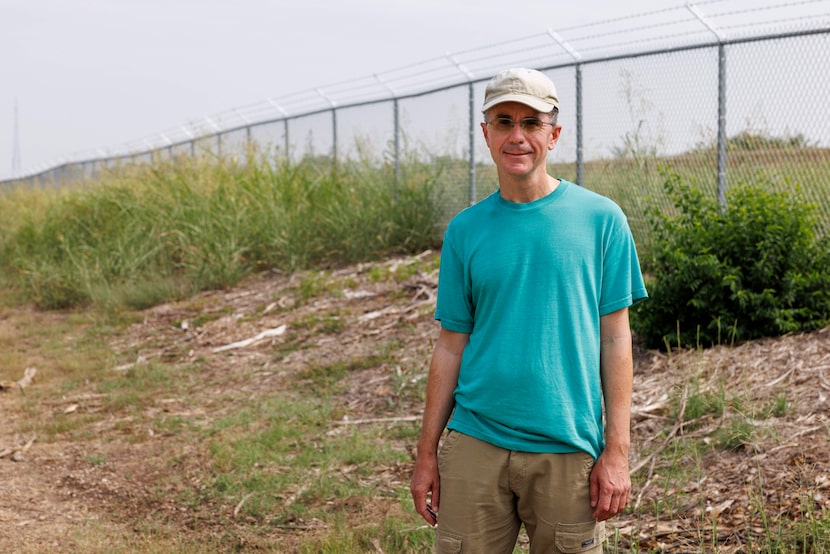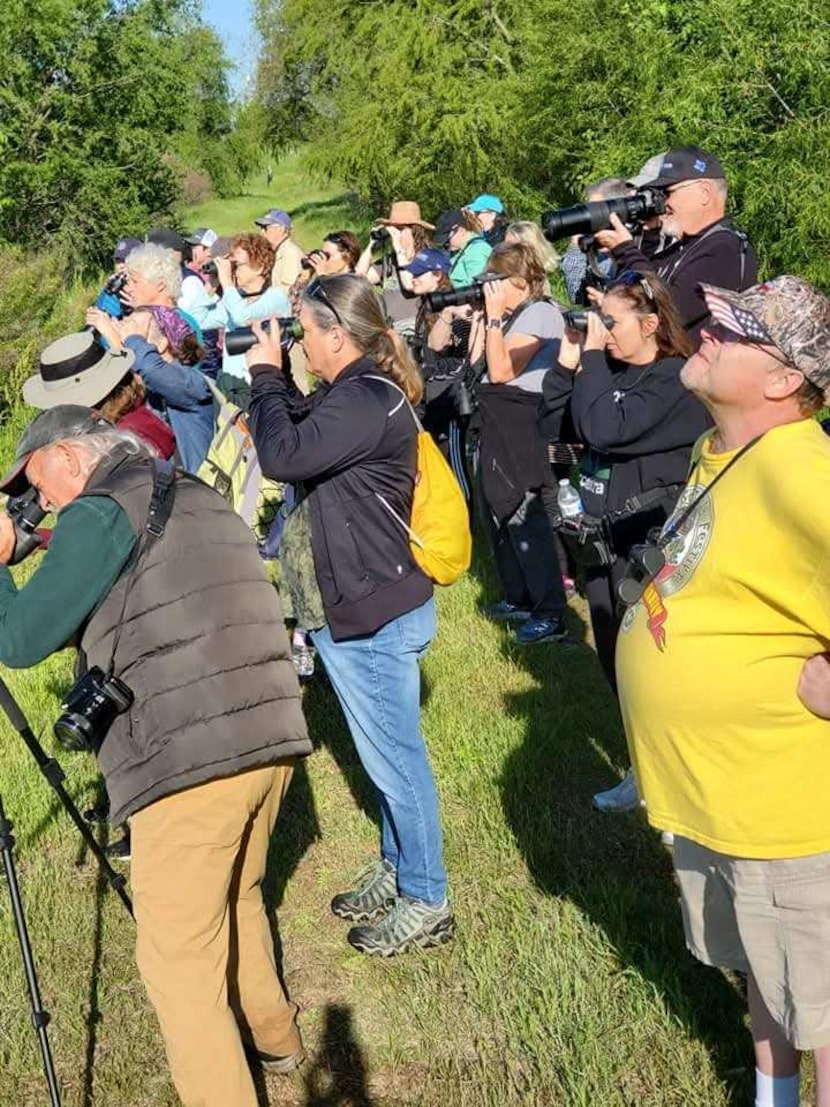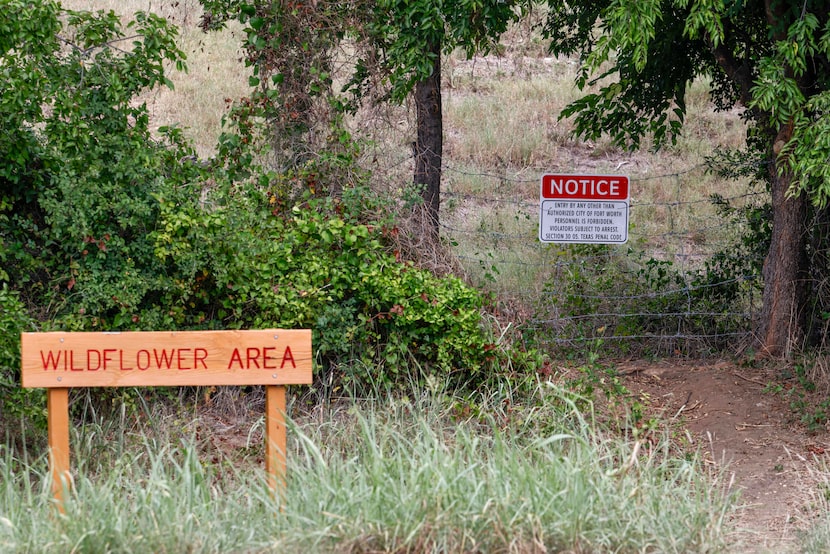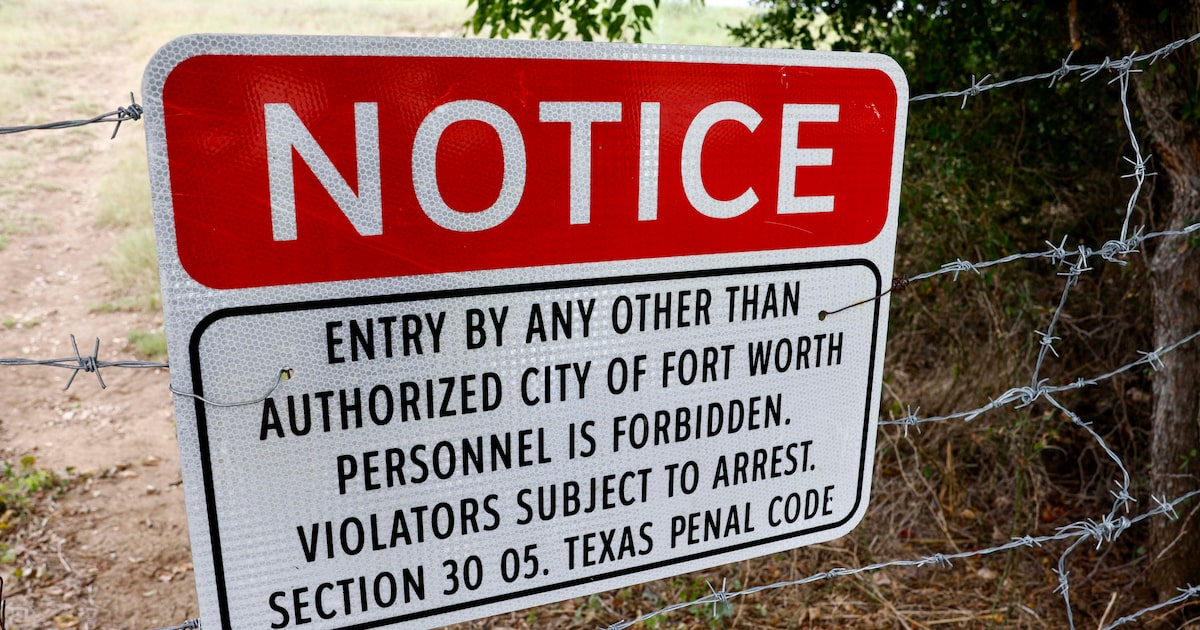FORT WORTH — Past the cars whizzing by and down a short paved road lies a sprawling piece of land, dotted with marshes and towering willow and cypress trees. Here, Colby Ayers once spent hours each week wandering the paths in search of birds.
On a hot day in July, Ayers arrived to his usual spot at the Village Creek Drying Beds in Fort Worth to instead find a locked gate and sign warning “No access.” Stunned, Ayers eventually learned from city and federal officials that an oil spill in May was behind the closure.
Months after the spill, Village Creek Drying Beds — one of the most beloved and popular birding locations in North Texas — remains closed to the public. For now, Fort Worth officials say there are no plans to reopen the site.
Birders and naturalists say they are devastated and worried about wildlife. A petition asking Fort Worth to restore public access has received more than 1,200 signatures, including from author Amy Tan, who wrote The Joy Luck Club and is an avid birder.
Breaking News
“We have this natural gem in the middle of an urban area, where it’s incredibly hard to find wild, undeveloped land,” said Ayers, 46, a professional statistician who lives in nearby Euless. “Why are we shutting this down?”

Birdwatcher Colby Ayers stands near a newly erected barbed wire fence blocking entry to the Village Creek Drying Beds in Fort Worth. Ayers has asked the city to restore public access to the beds.
Elías Valverde II / Staff Photographer
Less than five miles from AT&T Stadium and adjacent to Arlington’s River Legacy Park, Village Creek spans 240 acres of woods, open water, mudflats, marshes and grassland. It is home to more than 320 documented bird species, including wintering sparrows, raptors and waterfowl, making it the largest, most diverse birding spot in North Texas, according to eBird, an online tracking program run by Cornell University.
Yet city officials say the closure is necessary, citing safety concerns and legal liability. In May, a 16-inch crude oil transmission line in Arlington ruptured, dumping more than 2,600 barrels of oil, Environmental Protection Agency records show.
The line is owned and operated by Energy Transfer, a private company that transports and stores crude oil. Energy Transfer did not respond to a phone call or email seeking comment Wednesday.

Birders gather to watch nesting least grebes in 2008 at Village Creek Drying Beds in Fort Worth. This marked the northernmost nesting record. The drying beds, still one of the most popular bird-watching locations in North Texas, has closed to the public due to an oil spill.
Colby Ayers
Some of that oil seeped into the Fort Worth sewer system, contaminating the nearby Village Creek Water Treatment Plant, said Mary Gugliuzza, a spokeswoman for the Fort Worth Water Department.
Fort Worth and EPA officials say the oil poses no immediate public health risk, but the spill disrupted the biological treatment processes that clean wastewater.
To allow the plant to recover, the city moved the treated sludge to air dry at the drying beds before disposal, Gugliuzza said. Public access was restricted to protect the public and workers.
“We recognize that the drying beds have long been a point of interest, especially for birdwatchers, as the area is a well-known habitat for migrating birds,” Gugliuzza said. After reviewing safety protocols, however, the city determined that allowing public access to the drying beds “created significant risk to the city.”

A trail entrance to The Village Creek Drying Beds in Fort Worth is blocked with a barbed wire fence Tuesday, Aug. 26, 2025. The drying beds are a popular spot for birdwatchers with more than 300 different species of birds seen in the area.
Elías Valverde II / Staff Photographer
City officials said the drying beds could eventually open for limited and temporary access to wildlife groups, but a timeline is not yet known.
Originally built to dry sewage sludge, Village Creek transitioned in 2001 to an emergency backup for biosolid storage. Wetland-like conditions created a prime habitat for birds and other wildlife, sometimes drawing rare species, including a sharp-tailed sandpiper and long-tailed duck.
Even before the site transitioned to a backup facility, birders say public access was permitted. Robert Neill, a retired biology professor at the University of Texas at Arlington, recalled leading students through the beds as part of class field trips as early as 1977.
“The variety of birds is better out there than anywhere you can get in North Texas,” Neill said.
Some bird watchers are concerned about the health of the wildlife, but Neill said it is impossible to understand the extent of potential damage until samples are taken of the soil and groundwater. It is not clear if those samples have been taken, but air quality samples were within normal range, according to the EPA report.
Minimal traces of oil present in the drying sewage sludge could pose a risk to the birds’ reproductive and immune systems, Neill said.
“There are a lot of unknowns,” he said.
City staff are checking on wildlife regularly and have not observed any issues, Gugliuzza said.
Ayers, a birdwatcher for 20 years, said the drying beds have long provided an urban respite for hundreds of birders and nature lovers. He said he is committed to finding a solution to reopen the beds.
“I don’t think the city realizes what a special place this is,” he said. “This is such a loss for so many people.”
